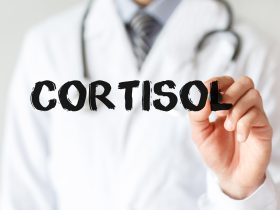Alzheimer’s disease is a devastating illness that worsens over time. Dementia is an umbrella term for a group of symptoms including memory loss, thought disruption, and behavioral changes. These alterations make regular activities difficult. Many different conditions and accidents involving the brain can result in dementia. The root of the problem isn’t always clear.
The Alzheimer’s Association estimates that between 60% and 80% of all dementias are caused by Alzheimer’s disease. The average age at which a patient is diagnosed with the condition is 65. Alzheimer’s disease is typically referred to as “younger onset” or “early onset” if it is diagnosed before the age of 65.
Although Alzheimer’s currently has no cure, it can be managed with medication.
Alzheimer’s disease symptoms
Occasionally, we all suffer from bouts of amnesia. However, those who suffer from Alzheimer’s exhibit a set of persistent habits and symptoms that only get worse over time. Some of these are:
- loss of memory impacting routines like keeping appointments
- having difficulty performing common activities like using a microwave; having difficulty communicating; having trouble keeping track of time or location; and other similar issues
- softened bias
- lowered standards of cleanliness
- mood swings and character shifts
- separation from loved ones and the larger society
These symptoms are not usually indicative of Alzheimer’s disease. Seek medical attention so the root of the problem can be identified.
Analysis of Alzheimer’s
Alzheimer’s disease cannot be diagnosed with certainty. However, your doctor will be able to make a more accurate diagnosis with the use of mental, physical, neurological, and imaging testing.
Your doctor may perform a mental status examination first. This will aid in their evaluation of your:
- short-term memory
- long-term memory
- orientation to place and time
Alzheimer’s disease diagnosis
Alzheimer’s disease can only be positively diagnosed through a postmortem examination of brain tissue. However, your doctor can rule out other disorders and diagnose dementia using various examinations and tests of your mental ability.
The first thing the doctor will probably do is take a history of your health. They could inquire about you in terms of:
- symptoms
- family medical history
- other current or past health conditions
- current or past medications
- diet, alcohol intake, and other lifestyle habits
Alzheimer’s medication
Alzheimer’s disease is now incurable. But there are therapies available that can help alleviate your symptoms and slow the disease’s course, so talk to your doctor about what options are available to you.
Donepezil (Aricept) and rivastigmine (Exelon) are two drugs your doctor may give you if you have mild to moderate Alzheimer’s. These medications can help keep acetylcholine levels in the brain steady. The communication between your brain’s nerve cells may improve as a result. The symptoms of Alzheimer’s disease may improve as a result.
Only people in the earliest stages of Alzheimer’s disease should take the new drug aducanumab (Aduhelm). It may lessen the accumulation of protein plaques in the brains of those with Alzheimer’s disease. There are some doubts as to whether the drug’s benefits are worth the risks.
Memantine can help prevent the harmful consequences of too much glutamate. Glutamate is a neurochemical that is overproduced and harmful to brain cells in people with Alzheimer’s disease.
Factors that can lead to Alzheimer’s disease
There is no known single cause for Alzheimer’s disease; however, various risk factors have been found.
Age. Alzheimer’s disease often affects those over the age of 65.
Origin stories. You have a higher risk of contracting the disease if a close relative has already been diagnosed with it.
Genetics. Alzheimer’s disease has been linked to a number of genes.
Alzheimer’s disease and heredity
Genetics may have a significant impact, although there is no known cause of Alzheimer’s disease. Scientists are very curious about one particular gene. The APOE gene has been found to play a role in the development of Alzheimer’s disease in the elderly.
If you want to know if you have the Alzheimer’s-linked variant of this gene, a simple blood test will do the trick. Having this gene is not a guarantee that a person will get Alzheimer’s disease.
It’s also possible to develop Alzheimer’s despite lacking the gene. There is currently no reliable approach to predicting who will have Alzheimer’s disease.
The chance of developing Alzheimer’s may also be influenced by other genes. Some cases of early onset have been connected to uncommon genes.
Preventing Alzheimer’s
There is now no treatment or cure for Alzheimer’s disease, and there is also no guarantee against getting the disease. The best weapons we have against mental deterioration right now are healthy lifestyle choices.
The following measures could prove useful:
Just stop smoking if you can. If you are a smoker, quitting will have positive effects on your health right away and in the future.
Do frequent exercise. Many diseases and disorders, including heart disease and diabetes, can be avoided by maintaining an active lifestyle.
Engage your mind regularly. Think about engaging in some mental acrobatics.
Enjoy a healthy diet. Fruits and vegetables are essential components of a high-quality diet.
Keep up with your friends and family. Social interactions, community service, and recreational activities all contribute to better health.















Find Us on Socials